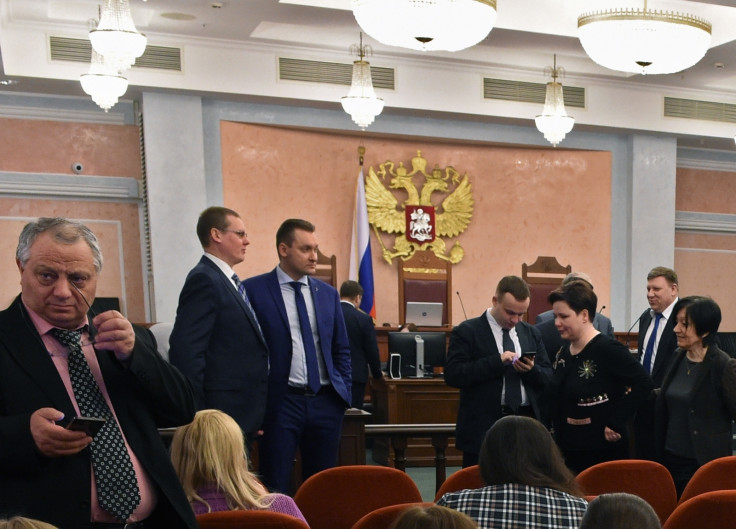Russia upholds its ban on 'extremist' Jehovah's Witnesses – but the group vows to fight on
The Supreme Court in Russia rejected an appeal against a nationwide ban on Jehovah's Witnesses.

The Supreme Court in Russia has rejected an appeal by Jehovah's Witnesses against a ban on their religion from operating in the country after the authorities branded it "extremist". The Russian court upheld the ban - introduced in April - in a ruling on 17 July.
"Religious freedom in Russia is over," said Yaroslav Sivulsky, a spokesman for Russian Jehovah's Witnesses, after the decision. "It's a very sad situation for our country: now anyone who studies the Bible can be jailed."
Under the ban, all 395 local chapters of the Jehovah's Witnesses were dissolved, their activities - including worship - outlawed, and their property confiscated by the Russian state.
"This ban has already resulted in cases of criminal prosecutions against Jehovah's Witnesses, as well as police raids on their prayer halls, arson attacks and other forms of harassment," said a statement from the European Union's diplomatic affairs department.
"Jehovah's Witnesses, like all other religious groups, must be able to peacefully enjoy freedom of assembly without interference, as guaranteed by the Constitution of the Russian Federation, as well as by Russia's international commitments and international human rights standards."
Ahead of the April ruling, the Russian Justice Ministry said its investigations uncovered evidence that Jehovah's Witnesses groups were breaking extremism laws.
"Checks have found that the organisation is in breach of the law on resistance to extremism," said a ministry spokeswoman, reported the Russian news agency TASS. "In particular, the organisation's religious literature forbids blood transfusion for its members in defiance of the doctors' recommendation."
She added: "The religious organisation Jehovah's Witnesses has been repeatedly warned by courts of law, but it has taken no required measures to eliminate the violations."
Russian Jehovah's Witnesses say they plan to take their fight against the ban to the European Court of Human Rights, of which Russia is a part as one of the members of the Council of Europe and a signatory of the European Convention on Human Rights.
There are believed to be around 170,000 members of Jehovah's Witnesses in Russia. Jehovah's Witnesses are followers of the Bible and Jesus Christ. They adhere to strict rules such as not venerating the cross, unlike Christian groups, and they do not celebrate birthdays, partly because of the "pagan roots" of such festivities.
Among the most controversial beliefs of Jehovah's Witnesses is the rejection of blood transfusions - even if they are life-saving - because "both the Old and New Testaments clearly command us to abstain from blood," says the religious organisation's website.
"Also, God views blood as representing life. So we avoid taking blood not only in obedience to God but also out of respect for him as the giver of life."
© Copyright IBTimes 2025. All rights reserved.






















